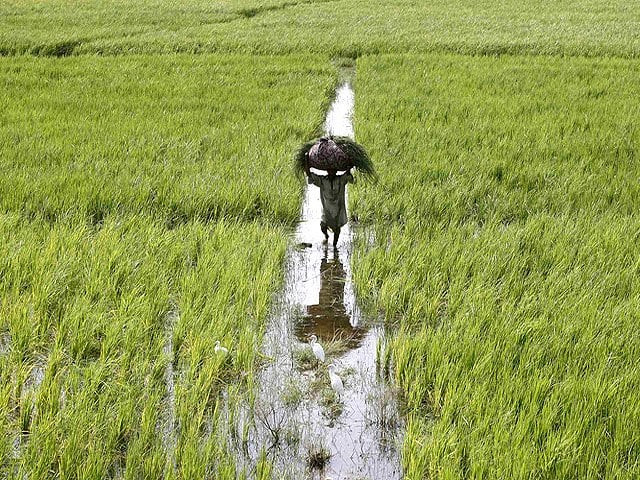Need of the hour: To boost agriculture output, ‘use of technology is a must’
Seminar highlights issues and problems faced by farmers in Punjab

" The colonial
architects also paint
the landscape as a
wasteland… to argue
that ‘only modern
irrigation can save
the landscape’,"
University of Texas at Austin
PhD candidate Mubbashir Rizvi. PHOTO: FILE/REUTERS
The seminar organised by the Centre for Governance and Public Management (CGPM) and Lahore University of Management Sciences (LUMS), focused on providing structured feedback and suggestions on the draft Punjab Agriculture Policy prepared by the Punjab Agriculture Commission. CGPM Director Dr Ahsan Rana moderated the seminar.
While discussing the Punjab Agriculture Policy draft, the participants suggested that an increased use of technology was needed for the improvement of farming practices.

University of Agriculture Faisalabad (UAF) Vice-Chancellor Dr Iqrar Ahmad highlighted the broad outlines of the policy, after which the participants discussed in detail the challenges faced by agriculture in Punjab and the proposed policy responses.
Participants of the seminar included Syed Babar Ali, LUMS Vice-Chancellor Dr Sohail Naqvi, LUMS faculty members, alumni of Suleman Dawood School of Business (SDSB) Executive Certificate in Agribusiness Management (ECAM) and agribusiness leaders.
Dr Iqrar shared the policy proposals on nine broad issues related to Punjab’s agriculture. These issues include: productivity increase, adapting to climate change, poverty alleviation, input subsidies, agriculture research and extension, improving seed provision, agriculture produce markets, genetically modified crops, and meeting globalisation challenges.
These policy proposals stressed the need for increased use of technology, improvement in farming practices, increasing investment in agricultural R&D, and developing a more robust legal and institutional infrastructure.
While commenting on the draft Punjab Agriculture Policy, Syed Babar Ali identified the exponentially growing population as a key challenge affecting agricultural productivity, modernisation, and government efforts to alleviate poverty. Other discussants added their input related to the role of the government and private enterprises, the need for strategic prioritising, ensuring that agriculture gets the importance of a primary industry in Pakistan, and creating adequate price incentives for small farmers.
In his concluding remarks, LUMS SDSB dean Dr Jawad Syed said new technology, improved genetics, access to markets (virtual and physical), and viable credit market were central for improving agricultural productivity.
“Then there are external factors, such as political economy, governance, climate change, globalisation and international competition. Research advocacy and stakeholder activism was strongly connected; therefore, there is a need to promote and encourage stakeholder activism,” Dr Jawad said.
Published in The Express Tribune, January 27th, 2017.


















COMMENTS
Comments are moderated and generally will be posted if they are on-topic and not abusive.
For more information, please see our Comments FAQ